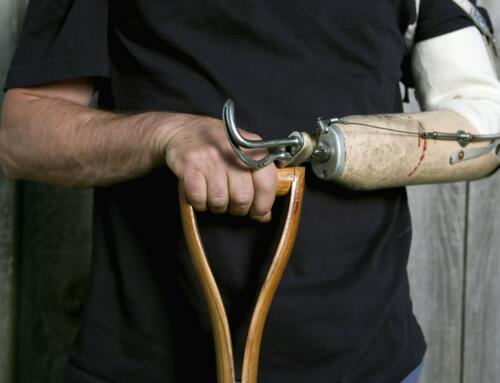Work injuries devastate a person and his or her family. The Pennsylvania Workers’ Compensation Act provides some relief, but what happens if payments disappear? If your claim is denied, you have the right to file a petition with the Workers’ Compensation Appeal Board. The complicated process requires the assistance of an attorney, but here are the five basic steps of the Workers’ Compensation Appeal process.
Step 1 – The Initial Appeal Filing.
An appeal of a judge’s decision must be filed within 20 days to the Workers’ Compensation Appeal Board which presides over all Workers’ Compensation appeals. You must allege that the judge misapplied the law or failed to consider facts in evidence.
Step 2 – Oral Arguments During the Appeal.
The Board holds a hearing with your lawyer and employer’s lawyer within one to two months. Lawyers from both sides give oral arguments in front of a panel of commissioners, then file briefs arguing the issues. The crux of the complexity of the appeals process is that judges have complete discretion to believe or disbelieve a witness testimony and the Board cannot counter a judge’s credibility determination. If the judge does not believe your doctor’s testimony over the testimony of the medical expert presented by your employer, that determination cannot be overturned. However, if the testimony of the employer’s medical expert is not sufficient to overcome your burden of proof, the fact that the judge believes the expert could be questioned.
How to Convince the Appeals Board
You need to show that the judge applied the wrong law or principle to the facts presented in your case. Alternatively, you need to show that the judge failed to consider evidence that was part of the record.
Step 3 – Reverse or Affirm the Decision.
Within 6-12 months the Board will either reverse or affirm the judge’s decision. If they reverse the decision, they remand the matter to the judge to address a specific issue, providing the judge with guidance as to the issue and the law that applies to it.
Step 4 – Appealing to The Commonwealth Court.
An Appeal Board decision can be appealed to the Commonwealth Court within 30 days. Typically, a three-judge panel then decides your case, but the same level of difficulty persists. Once again there is oral argument followed by briefs. Decisions from the court can take six months to a year or more and are based on evidence from the lawyers’ briefs.
Step 5 – The Final Decision.
Most often, appeals don’t go further than the Commonwealth Court; however, the last chance to appeal is with the Pennsylvania Supreme Court. The Supreme Court only hears cases they believe involve compelling legal issues. Their decision signifies the end of the process.
How Long Does The Workers’ Compensation Appeal Process Take?
There is no set timeline for the Workers’ Compensation Appeal process, but these are the affecting factors:
- The workload of the judge or judges hearing the appeal
- How hard your employer fights the claim
- How far you wish to take the appeal
It could take up to a year or more for the initial claim to be decided; however, many claims settle in far less time. Employers often don’t want to spend the money to fight the appeal.
Appealing a Workers’ Compensation case is a difficult process because of the discretionary nature of a judge’s decision. Hiring a certified workers’ compensation Lawyer will tip the odds in your favor. Your employer will have one, so you should, too. Contact me for more information. There’s no charge for the initial consultation.







